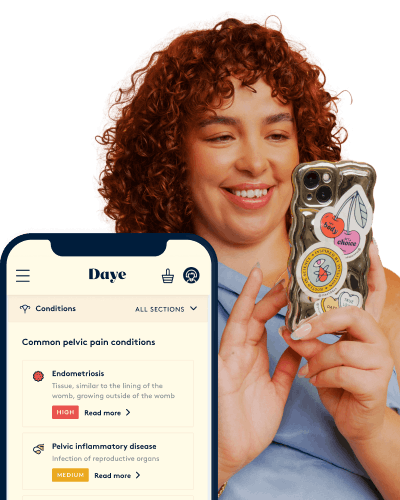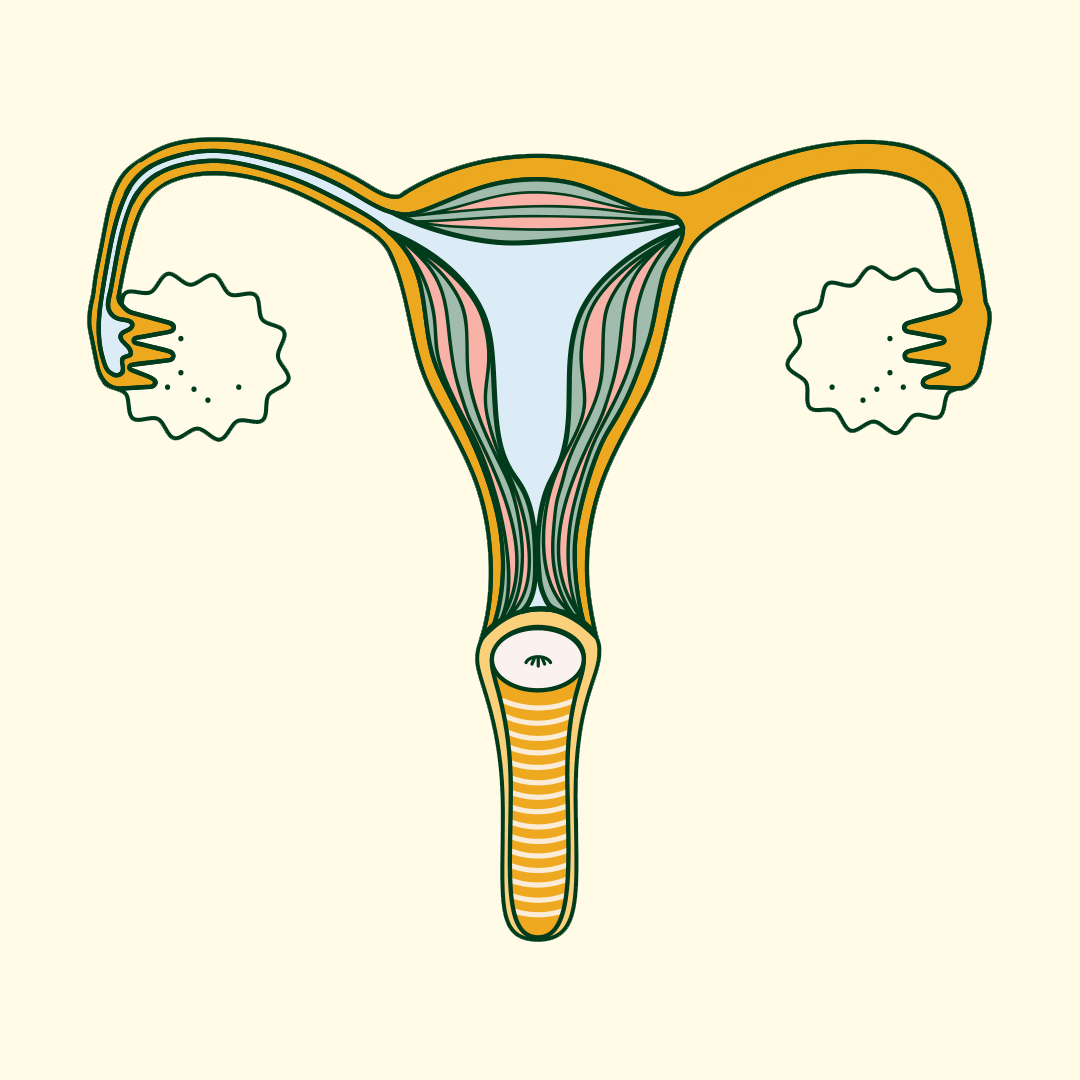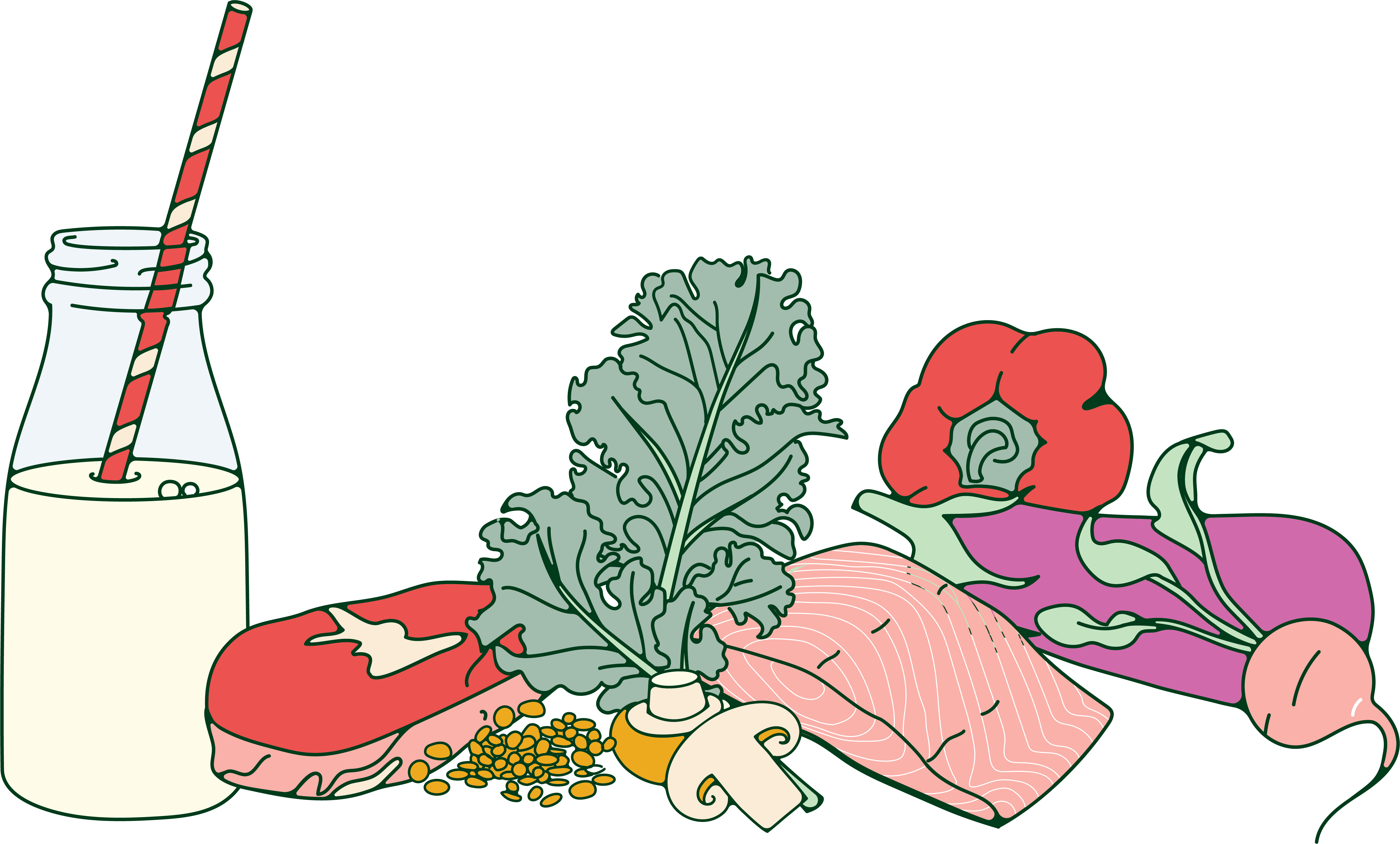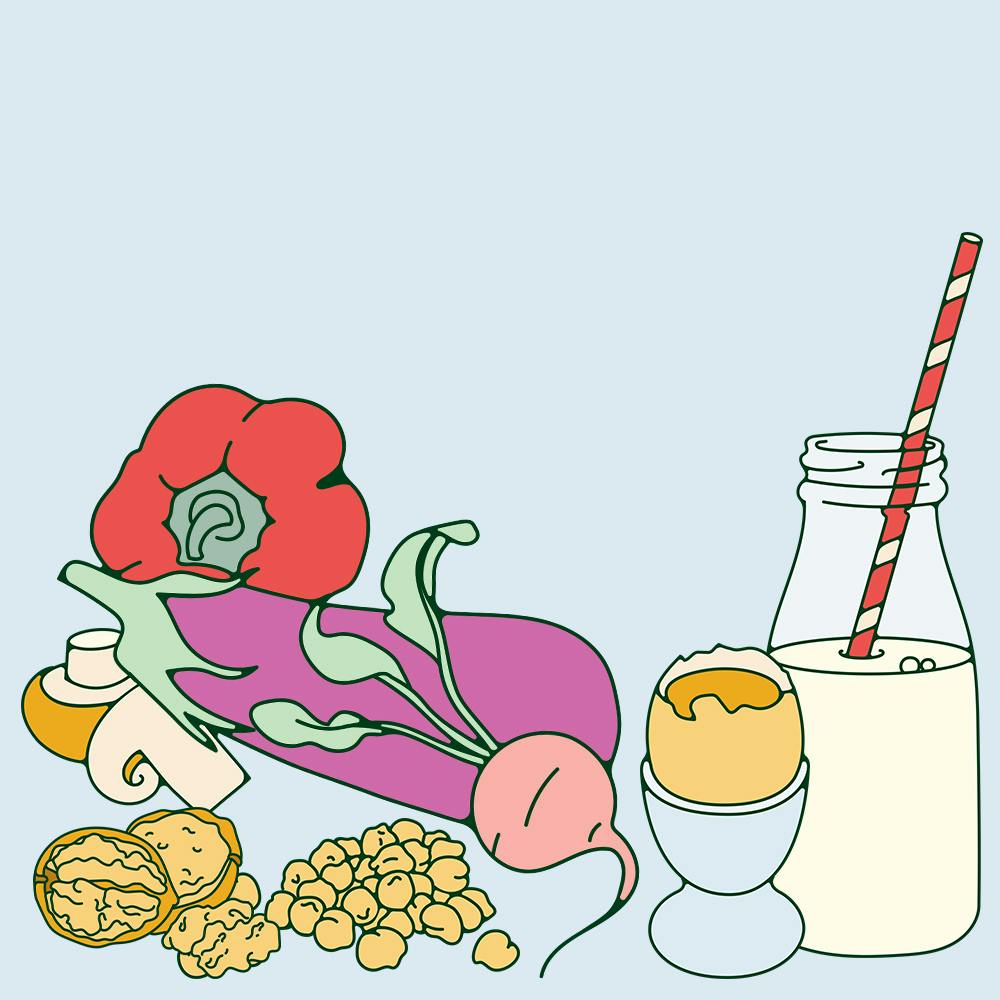Table of contents
1. The internet is filled with advice on alternative endometriosis treatments, including dietary changes – but is there any evidence to suggest that people with endometriosis should avoid certain foods?
2. Endometriosis treatment
Written by Liv Cassano
Illustrated by Sabrina Bezerra
The internet is filled with advice on alternative endometriosis treatments, including dietary changes – but is there any evidence to suggest that people with endometriosis should avoid certain foods?
The simple answer would be: sadly, no. But as with most things related to endometriosis, the answer is rarely simple.
Although there’s not enough data to recommend one particular diet over another as a way to treat or prevent endometriosis, more and more women are overhauling their diets in a bid to manage the condition.
To put the rumour to rest, we asked an expert about whether there is a universal diet that can help manage endometriosis symptoms.
Take the pain out of your period
90% of us experience period pain, and when left unmanaged it leads to us losing 150 million productive work days per year.

What is endometriosis?
Endometriosis is a chronic gynaecological disorder that affects around 1 in 10 women and AFAB individuals in the UK, and can cause debilitating symptoms like abnormally painful and heavy periods, bowel and bladder problems, and chronic pain.
In endometriosis, cells similar to the uterine lining (endometrium) start to grow in other places of the body, including the ovaries, fallopian tubes, and bowels.
These growths react to the hormonal fluctuations of the menstrual cycle and build up every month, then shed like a period. However, unlike the endometrium, the blood has nowhere to go and remains trapped inside the body, leading to inflammation and pain.

Endometriosis treatment
There is currently no known cure for endometriosis, but there are treatments that can help with symptoms.
Endometriosis symptoms are usually managed with over the counter or prescription painkillers, hormone treatments (like the combined oral contraceptive pill) and surgery.
Treatment options and efficacy will vary from person to person, depending on what symptoms they experience and to what degree.
Endometriosis and diet
Can diet, or cutting out specific foods really help with endometriosis?
“There is no simple answer to this question unfortunately, like most things related to endometriosis,” says Dr. Nicola Tempest, a clinical research fellow at Liverpool Women’s Hospital specialising in endometriosis and fertility and member of Daye’s medical advisory board.
There are several "endometriosis diets" floating around on the internet, but regardless of what Google tells you, there is not enough data to recommend one particular diet over another.
Most often, you’ll find “anti-inflammatory” diets touted as a solution to endometriosis, which label the likes of dairy, red meat, soy, refined sugar, fried foods, refined carbs, gluten, alcohol and caffeine triggers for endometriosis. Basically, that rules out most food groups.
What does the research say?
Endometriosis is overall a highly under-researched condition, so admittedly there is a dearth of literature on the relationship between diet and endometriosis.
“There are certain diets that are starting to be explored in relation to prevention and treatment of endometriosis, but no conclusive answers,” says Dr. Tempest.
A systematic review published in the European Journal of Obstetrics & Gynecology and Reproductive Biology of the data concerning the effect of diet on endometriosis concluded that “literature on diet and endometriosis is sparse” and “no clear recommendations on what diet to eat or refrain from to reduce the symptoms of endometriosis can be given.”
Another data review published in the Journal of Endometriosis and Pelvic Pain Disorders concluded that “Epidemiological data concerning the association between diet and endometriosis are growing but still limited and inconsistent.”

While studies on the impact of dairy intake and endometriosis symptoms are inconclusive, some observational evidence suggests that overconsumption of red meat may put you at higher risk for endometriosis – but that doesn’t mean the occasional steak will make your endo worse, nor will it suddenly cause it.
Meanwhile, one small study of 207 women found that 75% of participants reported an improvement in symptoms after going gluten-free for a year. But correlation doesn’t mean causation, and aside from the small sample, the design of the trial was also flawed as there was no placebo control or comparison arm.
A literature review analysing the evidence on nutritional aspects related to endometriosis found that diets that are rich in omega-3 fatty acids, fruit and veg and whole grains had a protective effect against endo. Similarly, some research shows that women who eat green vegetables roughly twice a day are 70% less likely to have endometriosis.
In other studies, researchers note that while "diet is a potentially modifiable risk factor for endometriosis," there are "no clear correlations between particular food products and the risk of endometriosis."
This data suggests that when it comes to endometriosis and diet, the key may not be to cut out specific foods, but rather to make sure you’re including plenty of vegetables and fibre for an overall balanced diet.
The endo diet: fact or fad?
Diet culture is entrenched enough in today’s society as it is, and too often we’re told what should or shouldn’t eat to be “healthy”.
The relationship between nutrition and health is as subjective as it is complex, let alone when it comes to endometriosis.
Restrictive diets are notoriously unsustainable and often require a drastic lifestyle overhaul. So if cutting out foods with gluten, dairy or sugar will make you miserable, that’s probably a sign that you stop.
Furthermore, people in recovery from eating disorders may find it too triggering to eliminate so many food groups from their diet.
There's also a lot of tradition and cultural significance tied to food, so it’s understandable if you don’t want to sacrifice that.
On the flip side, endometriosis is not one-size-fits-all, so treatment is subjective to each patient, depending on what degree of symptoms they experience.
“The disease is so heterogeneous that there will not be a one-size-fits-all food exclusion treatment, just as there is not a one size fits all medical treatment,” explains Dr. Tempest, “[but] if women have found that cutting out a certain product or food groups alleviates or helps manage their endometriosis-associated pain, then, as long as the diet is safe, they should continue to do what works best for them.
Anyone living with chronic pain will know how frustrating it can be when there is no treatment available, so there’s no harm making lifestyle changes or seeking out holistic approaches.
“If it works for you, it is safe, is within your budget and it makes you feel just a little better then definitely stick with it,” says Dr. Tempest.






